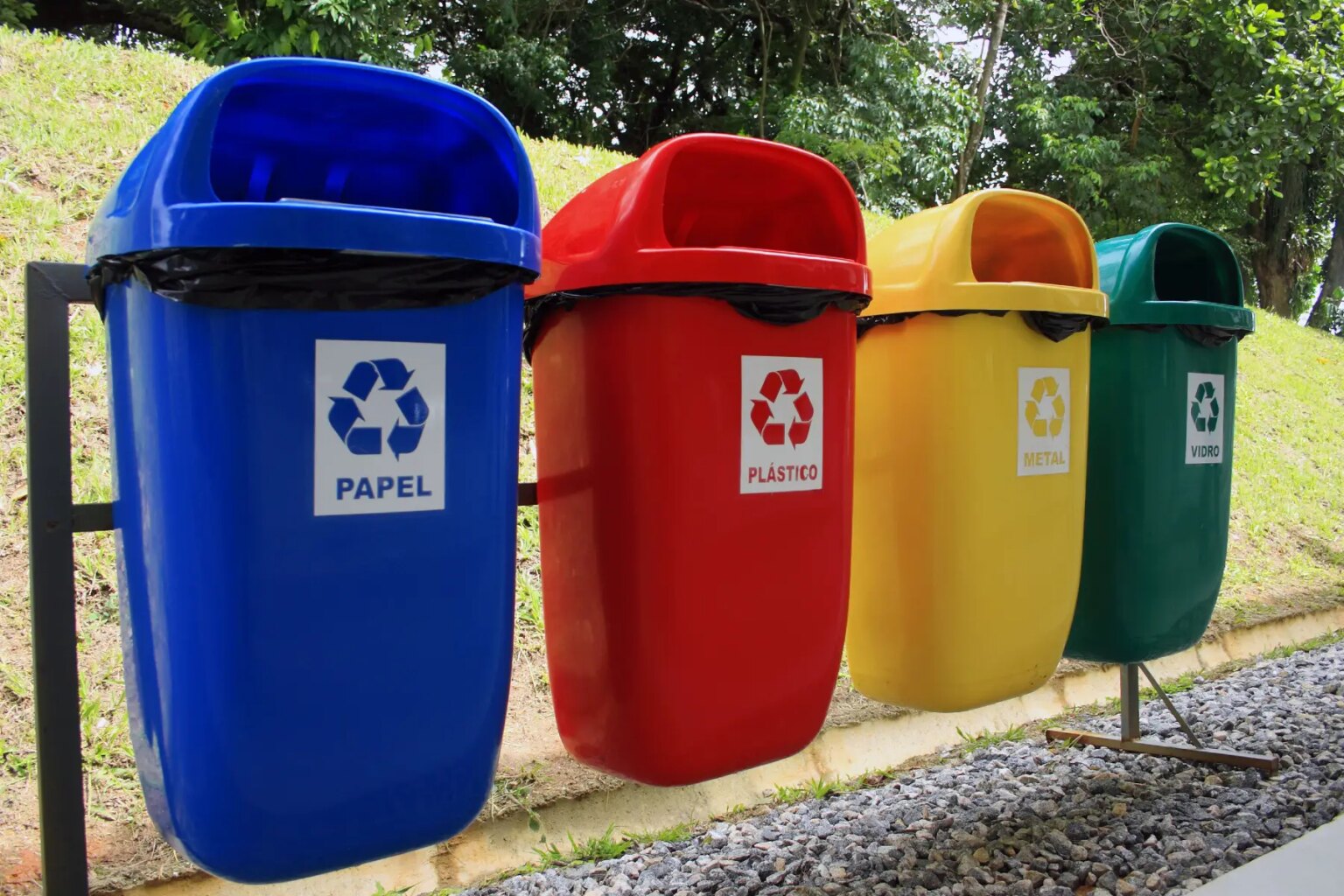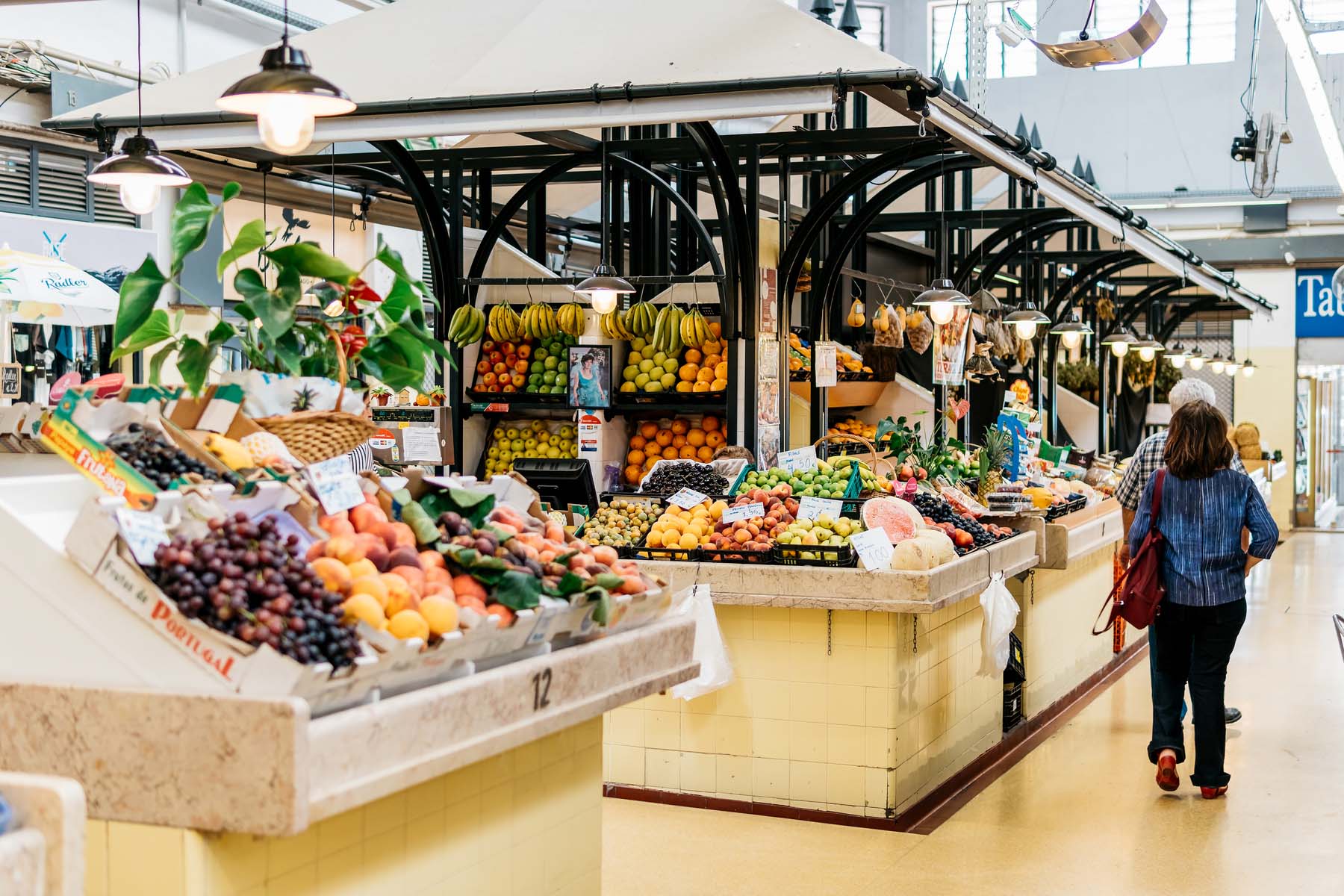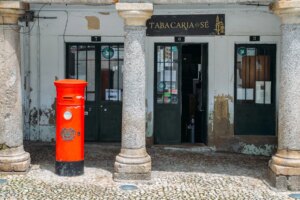So you’ve been living in Portugal for a while, basking in all the warm sunshine and pastel de nata that your body can handle. As you settle into your new casa, you might need to deal with less romantic matters such as taxes, food shopping, and figuring out where to throw away your trash and recycling.
To get a better sense of how recycling in Portugal works, continue reading. Sections include:
The recycling system in Portugal
While Portugal is a beautiful country, known for its historic landmarks, delicious food, and sunny beaches, the nation falls short in its recycling and waste management. EU figures show that recycling in Portugal only accounted for 29% of urban refuse in 2019, while the latest European average stands at around 48%.
Despite its poor reputation when it comes to waste, Portugal is making efforts to recycle the following:
- Paper (e.g., newspapers, magazines, and cardboard boxes)
- Plastic (e.g., bottles, straws, and packaging)
- Metals (including aluminum foil)
- Drinks packaging
- Batteries
- Electrical appliances
- Medications
- Small amounts of hazardous waste or chemical waste (e.g., detergents, varnish, paint, oil, cosmetics, and cartridges)
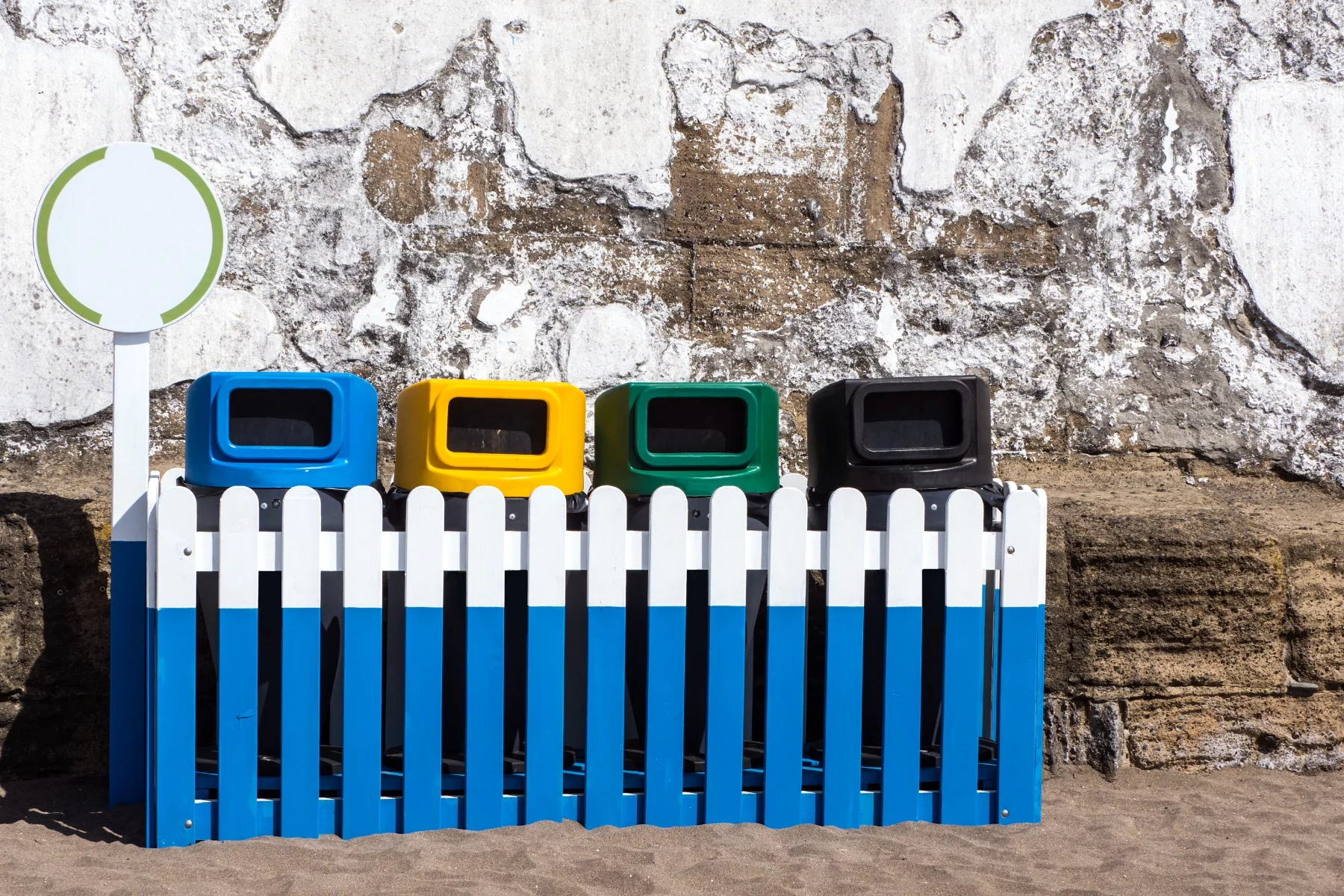
The municipality manages waste and recycling in Portugal, and there are color-coded bins (ecoponto) all over the country where you can dispose of household waste. You can even find these bins at the beach!
Lisbon has several projects in place to reduce waste, and won the 2020 European Green Capital Award. This involved making several green commitments for the future. These commitments included reducing the amount of waste and door-to-door collection of organic waste.
What happens to recycled materials in Portugal
So what’s next on the recycling journey after you’ve separated your waste? After the items are collected from the bins, they are sent to a sorting station (Estação de Triagem), where they are separated according to material. Then, the materials are delivered through a recycling service, Sociedade Ponto Verde, which sends the sorted products to recycling companies to be made into new items.
After going through this rigorous process, the recycled materials can contribute to new everyday objects, such as clothes, fibers, furniture, drainage pipes, vases, and even toilet paper.
Unfortunately, non-recyclable waste goes to landfills or an incinerator. Due to the COVID-19 pandemic, a lot of the garbage in Portugal has ended up going straight to landfill in recent years.
How to recycle in Portugal
Portuguese residents must separate their recyclable products and drop them off in the appropriate bins at ecopontos or take them to a recycling center. In some areas, it is also possible to arrange a pick-up of recyclables as part of household collections.
The collection times vary depending on the municipality. Check with your area’s waste management company to find out specific days.
You can learn more about the sorting rules for recycling at Sociedade Pontoverde. You can also use WasteApp, a useful mobile app that tells you how to dispose of all kinds of different products.
Recycling paper in Portugal
It’s free and easy to recycle paper in Portugal. You can put it into blue bins at an ecoponto, or arrange a door-to-door collection. In general, if the paper has liquids, food, paint, or dirt on it, you cannot recycle it. Items that you can recycle in the blue bins include:
- Cereal and egg boxes
- Newspapers and magazines
- Paper bags
These items should not go in recycling bins but in the grey waste bins:
- Toilet paper, napkins, tissues, and paper towels
- Oily pizza boxes
- Aluminum
- Sticky paper (paper with any kind of adhesive or chemical)
Recycling plastic in Portugal
Plastic waste, such as juice bottles, plastic bags, styrofoam, and milk cartons, go in the yellow bins at the recycling points or collected from your home. Make sure you empty the packaging before dropping it off to make recycling easier.
It is not possible to deposit the following plastic products at the recycling points:
- Fuel bottles
- Cassettes
- CDs and DVDs
- Hangers
- Plastic cutlery
- Cork stoppers
- Pens
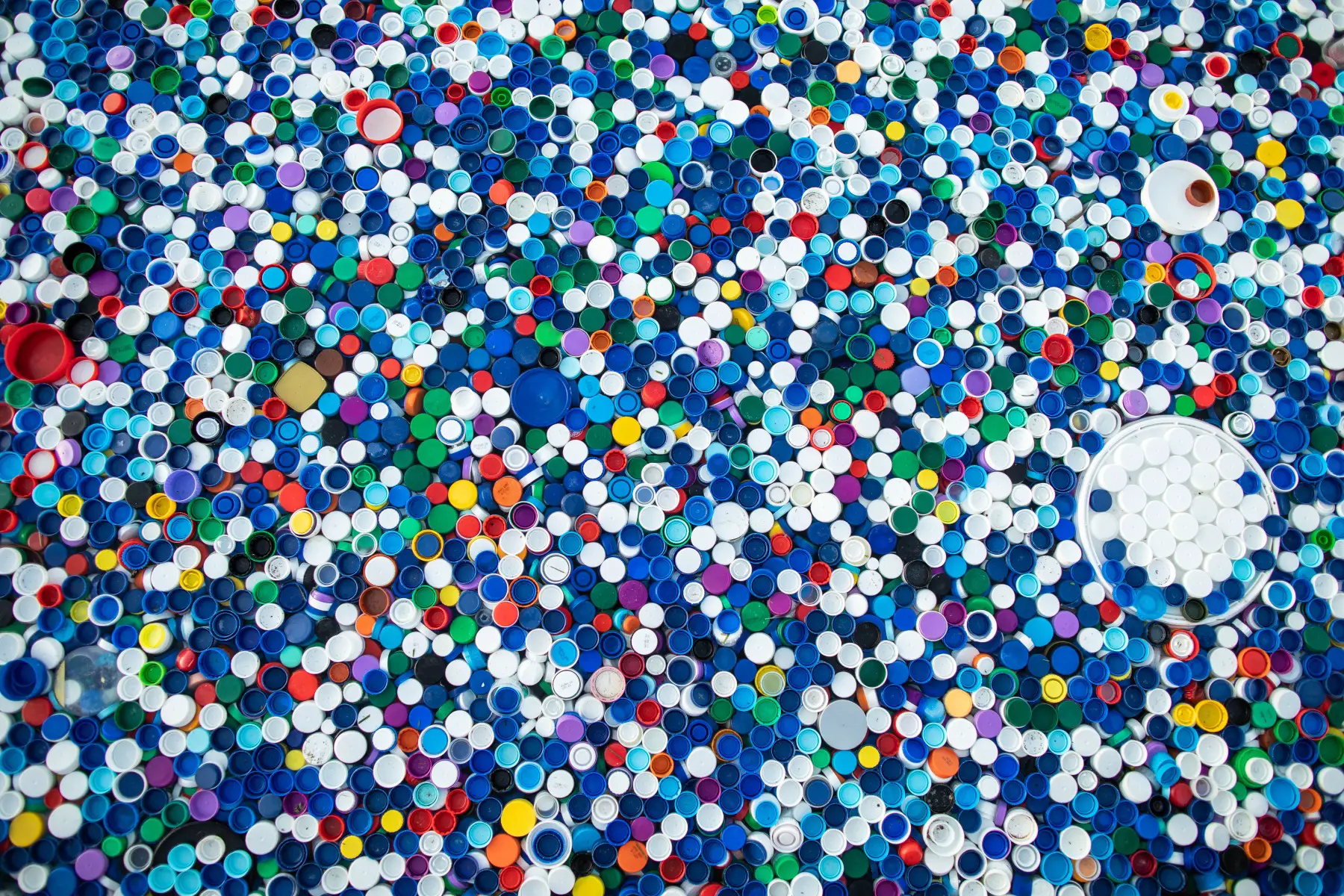
According to the Portuguese Environmental Agency (Agência Portuguesa do Ambiente – APA), Portugal only recycled 34% of its plastic waste in 2020.
Recycling glass in Portugal
Glass can be recycled in the green bins at ecopontos or collected from your home. You can use the green bins for the following:
- Beverage bottles
- Olive oil bottles
- Jars
- Perfume and cosmetic bottles
However, you may not place crockery, glass panes, lamps, medicine packaging, or construction materials in these containers.
The collection rate of glass in Portugal is less than 50%, a stark contrast to the 90% collection rate in countries like Belgium, Switzerland, and Sweden.
Recycling metal in Portugal
Metal items can also be recycled in the yellow ecoponto bins. You may recycle metal cans, aluminum, trays, metal lids, aerosol cans, and toothpaste tubes in the yellow bins.
It is not possible to recycle the following metal items in the yellow bins:
- Household appliances (e.g., blenders, coffee makers, and kettles)
- Batteries
- Metal cutlery and crockery
- Tools
Recycling clothes and clothing materials in Portugal
Textiles (used clothes and other fabric) should be donated to a clothing bank, if possible. Local animal shelters also appreciate used towel and sheet donations. There are also groups where textiles can be exchanged and reused. In general, used clothing that isn’t overly damaged or stained can be recycled.
A 2020 study conducted by menswear brand Labfresh showed that Portugal was the second most unsustainable European country when it came to recycling fabrics, with around 6.6kg of textile waste ending up in landfill or incinerated per person per year. In 2017, textiles made up 4% of all waste produced in Portugal.
Recycling other household items in Portugal
General household waste which is non-recyclable and non-hazardous should be put in the grey bins at the ecoponto.
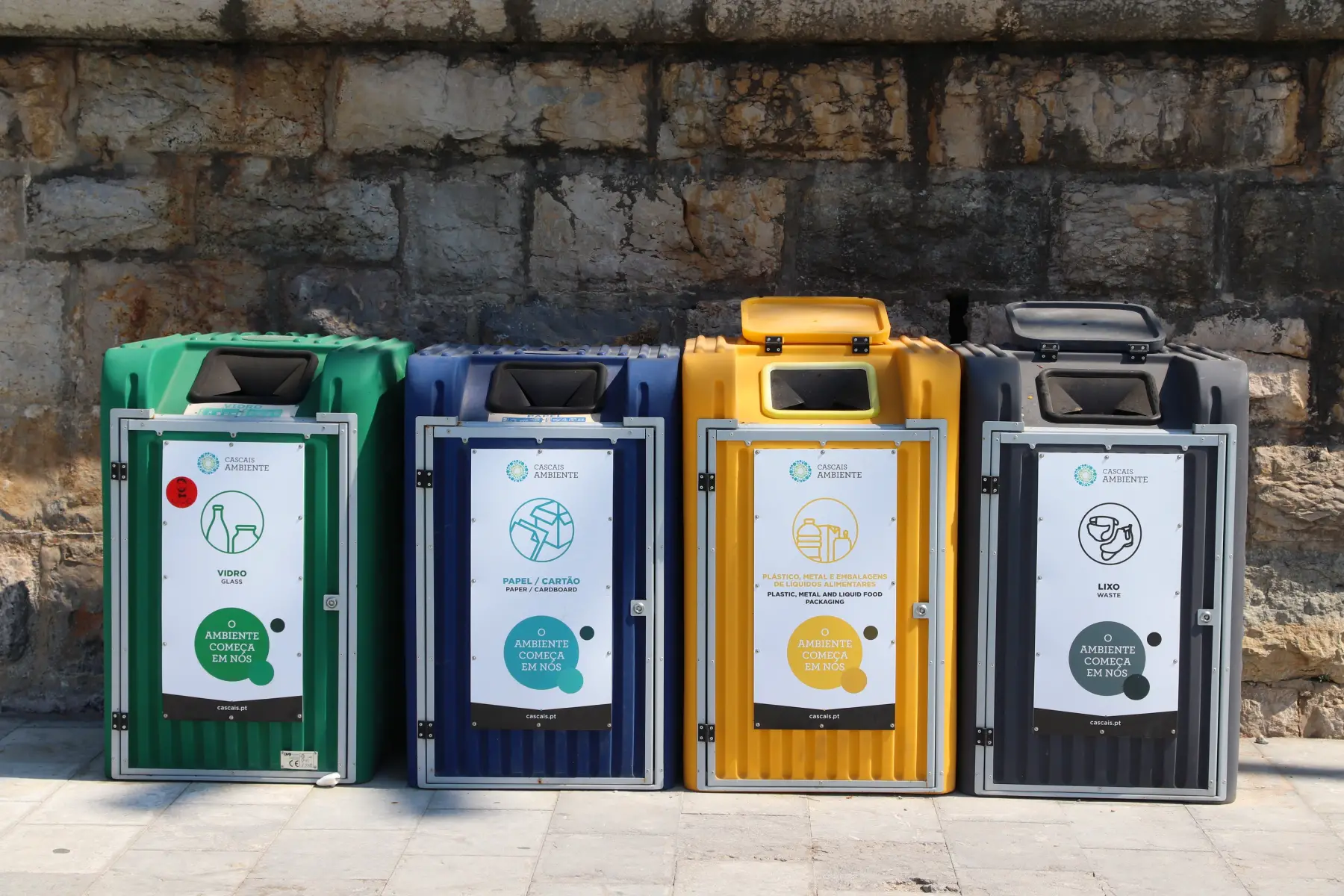
Some items cannot be recycled into the grey bins and must be put in the following places:
- Batteries: You can recycle batteries in the small red boxes at the ecoponto points. However, this is not available in every municipality.
- Electrical appliances: Electrical appliances must be taken to a larger recycling center.
- Bulky waste: Larger waste can be taken to a recycling center, and pick-up is sometimes available from the municipality.
- Mobile phones: You can drop off old mobile phones at ERP collection points.
Recycling tips in Portugal
- Be diligent about sorting your recycling: Make sure you separate your items carefully – you can use websites such as WasteApp to find out which things go in which bins.
- Be mindful of how much waste you produce: Living sustainably can make disposal less hassle and save you money.
- Contact the local authority for tips and information: You can find your local authority by searching on Ecoponto.pt.
- Inform yourself about local initiatives for a circular economy: These include Sociedade Pontoverde and Valormed.
Composting in Portugal
Composting food waste in Portugal
The brown bins at ecopontos are for organic waste. You can also use this organic waste to make your own compost at home, with plastic compost bins available for purchase at DIY stores and Lidl.
When making compost, it is best to avoid putting meat, fish scraps, dairy products, and pet waste into your bin. The Portuguese climate can cause these items to degrade quickly and attract unpleasant odors and insects.
Composting garden waste in Portugal
You can compost your garden waste or take it directly to a recycling center. Some garden materials that you can compost are crop residues, weeds, grass clippings, and new shoots. You can also add dry shredded leaves, wood, and dry straw-like materials, such as corn stalks. It is not a good idea to compost paper or cardboard since they can contain non-biodegradable materials.
Garbage collection in Portugal
The local authority collects non-recyclable waste from bins in front of households and collection points. If you have a household collection, make sure you put your waste in a sturdy bin such as a wheelie bin. It is an offense to put household waste into public litter bins. It is also possible to schedule pick-up services for larger items or other general waste by contacting the local authority. After collecting the waste, disposal services take it directly to landfills and incinerators.
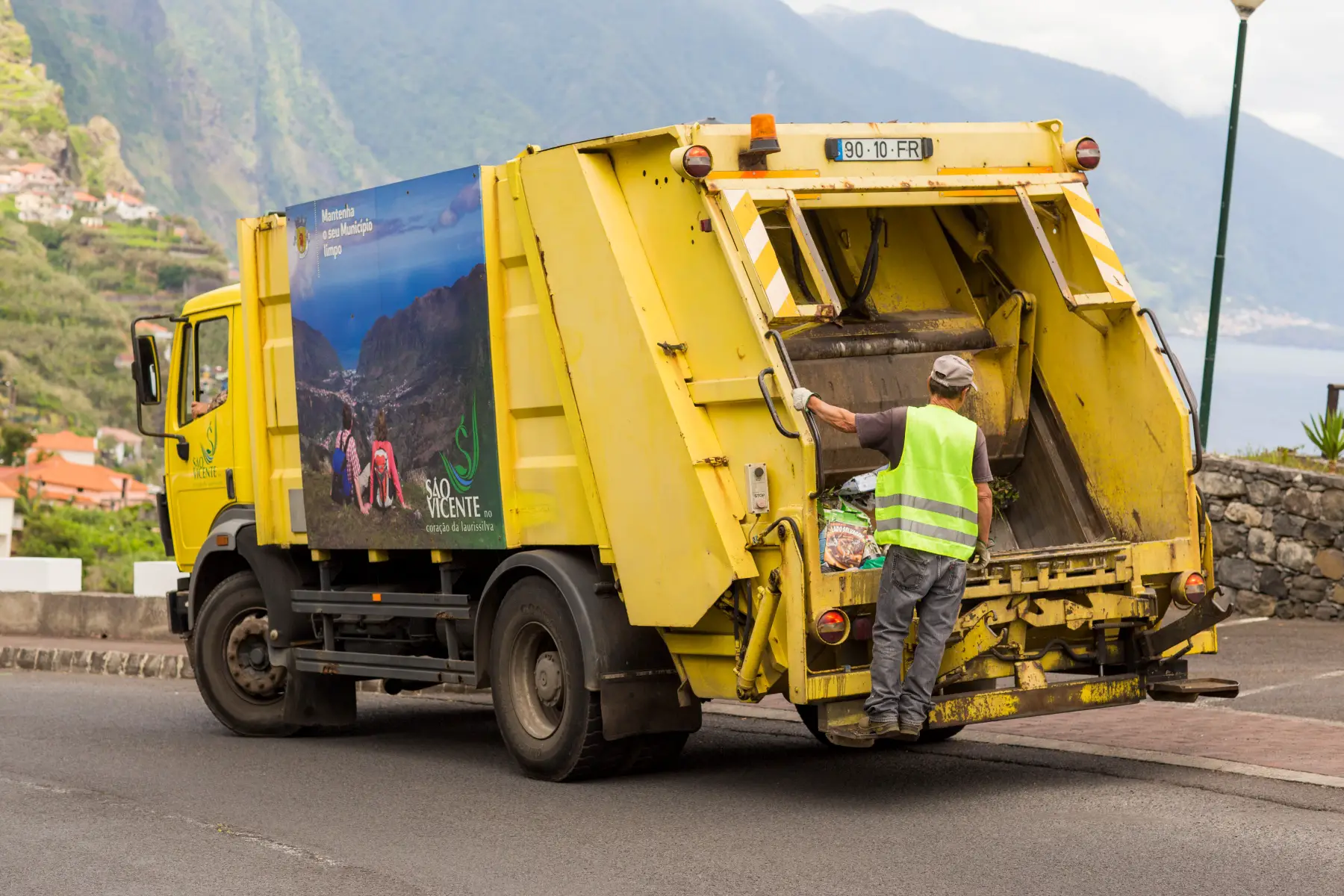
You must use garbage bags for the grey bins – you can buy them at your local grocery store (mercearia) or supermarket (supermercado) for less than €2 per pack.
When is my garbage collected in Portugal?
The schedule of garbage collection in Portugal depends on your area. Municipal workers in Lisbon pick up waste every Monday, Wednesday, and Friday. You can find out the schedule for garbage collection by visiting the website for your municipality and searching for ‘dias de lixo‘ or ‘coleta de lixo.’
Penalties for illegally dumping waste or recycling in Portugal
Littering and placing your waste in the wrong container can cost you dearly in Portugal. For example, in Porto, if you leave your garbage somewhere other than the correct container, you can receive a fine of up to €5,000. Fines vary according to municipality, so make sure you know which bin your waste belongs in before disposing of it.
Useful resources
- REA Portugal – A waste management service providing information
- The APA – The state agency aimed at improving waste management and sustainability policies
- Portugal Visitor – a useful guide to the ecoponto bins
- Sociedade Pontoverde – a tool that helps you organize your waste into the right bins
- Lisboa.pt – Check out the waste collection schedule and collection points in Lisbon
